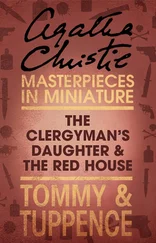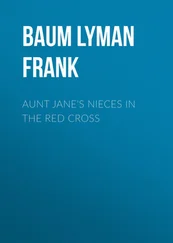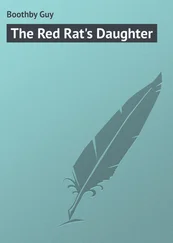And yet aside from loving him for who he is, which I do because he is a good man and closer to me than anyone else, I confess to blaming him more than a little for these same things that are not his fault and that he has not done. And yes, sometimes perhaps I wish to punish him, because I have not the fucking courage to punish myself as I should be punished.
22 May
Today, Josef’s thirtieth birthday, I no longer felt able to control myself. I picked up the telephone and called him.
When he was very young, tiny I mean, just a scrap of human belief, I called my firstborn Bunny . It was a name he loved, I am certain, for every single time I used it his face would light into a smile.
I can no longer remember when or for what reason I stopped calling him Bunny . Only that I did.
—
Seventy-five hundred kilometers away, I heard the familiar double click of the line connecting:
Who is it?
Bunny, is that really you?
I heard my son pause and think. Then I heard him make his choice, biting down hard on each word with his teeth:
It has been eight years. Do you think you sound the same?
And the line went dead.
“Your mother?”
My father’s language, like his limbs at this late stage of illness, hardly functions anymore. Even when healthy, he was a reticent man. Now he exists on the cusp of a permanent silence that, frankly, is sometimes a guilty relief to us both.
“She said she had a meeting in town,” I tell him. “She’ll be home late.”
He looks at me as if he would say something more if he had the energy. He is forty-four years old. The eyes staring out at me appear twice that.
“Can you take a little more broth?” I say, to move him off the subject. My mother has had a lot of “meetings” lately, that is just a fact.
With my hand supporting the back of his head, I tip him forward until his mouth reaches the straw I’ve offered. He makes a halfhearted suck, my mother’s homemade chicken stock darkening the waxed paper tube like urine. Then his eyes close, our signal for “no more.” I ease him back on the pillow. His helpless exhaustion a familiar specter, afterimage of himself that none of us will ever be able to edit out of the negative that was once his life.
I am at the door of his sickroom off the parlor, where he has lived these last six months, about to switch off the light, when I hear him murmur something.
“What, Dad?”
“Your mother,” he gasps.
“What about her?”
“I understand.”
I am thirteen years old. I do not ask what it is he understands about her. I say good night and turn out the lamp and leave him there in the darkness.
—
It is not long afterward—in my memory the same night, but that must be wrong—that I wake in my room on the second floor of the house to find my mother quietly weeping at the foot of my bed.
“Mom, what is it? Is Dad dead?”
She shakes her head, which she’s holding in her hands. “No. But I wish I was.”
“Don’t say that.”
“Why the hell not, if it’s true?”
“Are you drunk?”
“Listen to me, Peter. Are you listening? This might be the most important thing I’m ever going to tell you about myself.”
In the light from the hallway, I see that her mascara has started to run under her left eye. She has painted her nails, which she almost never does; they are gleaming faintly at the tips of her fingers like the carapaces of ten beetles. She has done her hair too, and the smell of her perfume, which she rarely wears, is in the room with us, and all of it is strange.
“You should go to sleep,” I say, as though I were the parent.
“ No . Listen to me. I felt…”
“Mom, I don’t want to know.”
“Peter, listen to me now. I ended it tonight. But I need you to understand. If I didn’t get some love, just a little bit of love in my life, I felt I would die.”
—
I recall a Senate hearing that was aired live on television not so long ago. They seem to occur almost weekly now, these staged gladiatorial inquests, there are so many channels to fill with “content” so many hours of the day, and God knows I have time to watch. The issue being investigated on this particular morning was some gross malfeasance on the part of powerful government officials toward those weaker and more vulnerable citizens they were duty bound to protect. (There’s a surprise.) I do not recall the details of the case or the names of the two men called to testify that day. What I recall are their voices, their faces, and their manners.
The first official had his lawyer sitting beside him; every so often they would incline their heads toward each other and confer in tones too low to be caught by the microphones. It was like witnessing lovers, almost, or a rabbinical confession exposed to the public. After which, and so counseled, in every case the man testifying went on to reply to the question without actually answering it.
The afternoon session found a different official in the chair facing the senators. This second man had a lawyer beside him too. Yet at no point during his two and a half hours before the committee did he consult his legal counsel, or even glance in his direction. He met each question with his shoulders squared and his gaze direct on the speaker. He never once looked away. He took responsibility for his actions while at the same time calling on other responsible parties to do the same. It was his opinion, he stated, that in this particular tragedy there were no innocent parties. And from listening to his voice, watching his face, this is what I remember, wherever you happened to be or whatever you happened to be doing, through electrical wires, silicon chips, the warping mysteries of radio waves, it was impossible not to understand that here before you was a person speaking the truth. And if this person were speaking the truth, which he was, then that first man, that government official with the lawyer in his pocket, could not have been speaking the truth.
—
My mother ended her affair. Whoever he was. Whatever it was, love or something like it, someone’s touch, that kept her alive while my father was slowly dying in the room off the parlor. After that night, we never spoke about it again. She had ended it, and yet she went on. How else to describe it? We all went on, except my father, who died that spring. And the following spring, in our same house where love had died but we had gone on, inexplicably, my mother and I were having breakfast early one morning before I went to school. I was studying at the table, an American history textbook open next to my plate of toast. My mother was reading the local paper with a mug of black coffee and a cigarette. Actually, I remember, it was yesterday’s newspaper, we always got it a day late because it was cheaper that way.
“I’m going to lie down,” she announced quite suddenly. And I saw that there were tears in her eyes. Before I could ask what had happened, she got up and left the kitchen. Left behind her cigarette, still burning in the ashtray, and the newspaper, still open to the page she’d been looking at.
My mother had been reading a wedding announcement—the type of news item I could not recall her ever paying the slightest attention to before.
Local dentist Carl Drummond, a thirty-eight-year-old widower, had married twenty-six-year-old Frieda Shepherd, who managed a flower shop. The bride had met her husband just three months earlier, when she’d gone in to have a cracked molar repaired. It was, she declared, “literally love at first sight.”
The photograph of Carl Drummond with his arm around his new wife made him seem a handsome man who could not believe his good fortune.
Читать дальше












